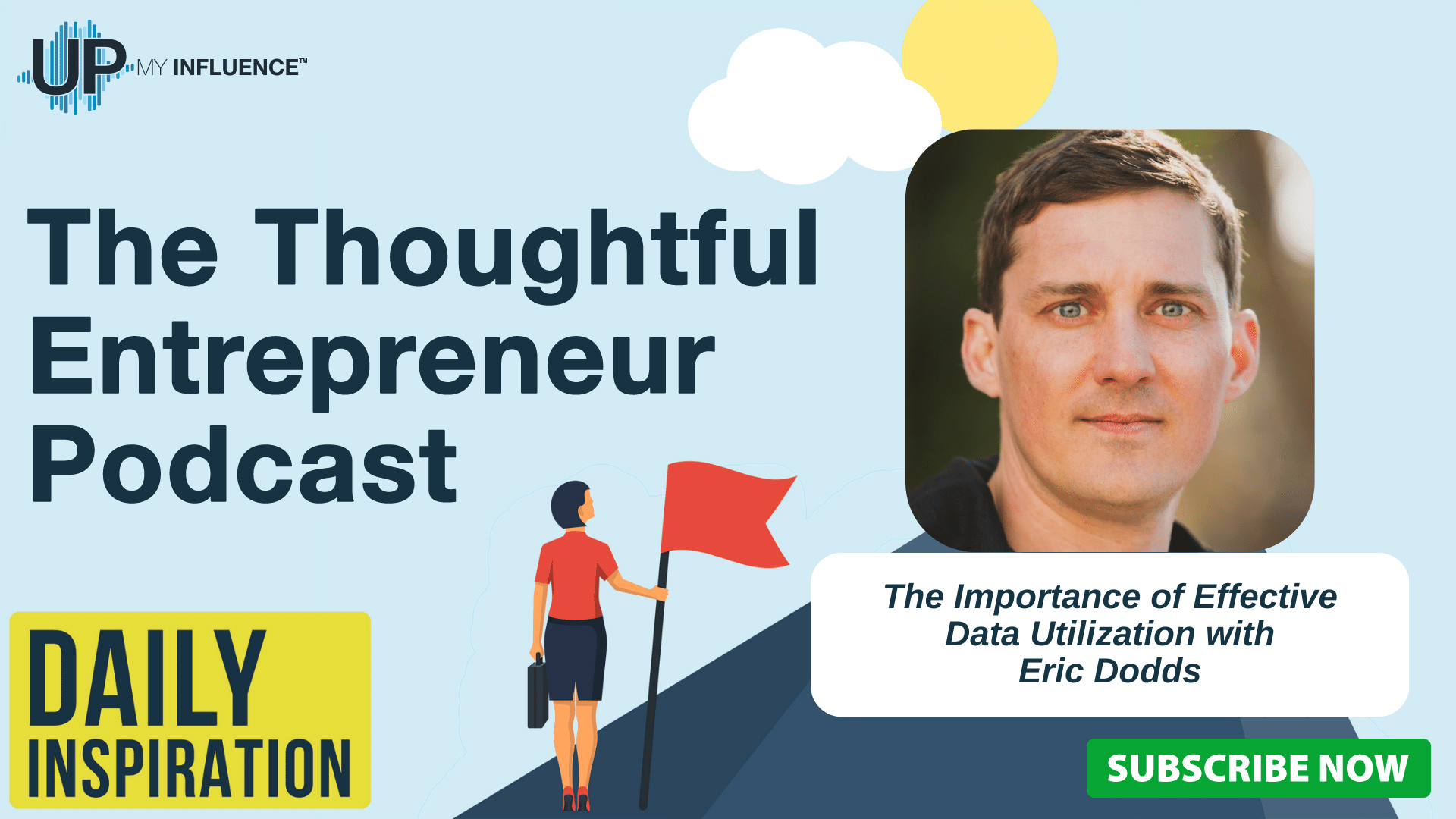THE THOUGHTFUL ENTREPRENEUR PODCAST
In this episode of the Thoughtful Entrepreneur, your host Josh Elledge speaks to the Head of Product Marketing of RudderStack, Eric Dodds.

RudderStack is a customer data platform designed to help businesses collect, integrate, and utilize customer data. It's a tool that breaks down data silos, providing a comprehensive view of the customer journey.
This platform offers tools to analyze and utilize data effectively, such as identifying potential churn customers and prioritizing leads for the sales team.
Eric highlighted the consequences of not working with data effectively. These include difficulty in making decisions and challenges in team collaboration. Understanding past performance and making informed decisions becomes a daunting task without proper data analysis.
Conflicting data across different teams can also hinder collaboration and alignment. Rudder Stack aims to solve these challenges by providing a data infrastructure that enables businesses to leverage their data for growth.
Eric explained that RudderStack's pricing model is based on a volume basis. Customers are charged based on the amount of data they send through the system. The simplicity of their pricing structure is a testament to their belief in keeping things simple for their customers.
Eric also shared some background information about RudderStack. The core of their product is open source, providing high transparency for customers. This transparency is a key part of RudderStack's commitment to helping businesses of all sizes, from startups to enterprise-level organizations, effectively utilize their data.
Key Points from the Episode:
- Introduction of Eric Dodds, Head of Product Marketing at RudderStack
- Discussion on RudderStack, a customer data platform
- Features and benefits of RudderStack
- Target audience of Rudder Stack (data leaders in companies of all sizes)
- Data privacy and security
- Consequences of not working with data effectively
- RudderStack's mission to provide a data infrastructure for growth
- Pricing model of Rudder Stack (volume-based)
- Best practices for early-stage companies using Rudder Stack
About Eric Dodds:
Eric Dodds, a resident of South Carolina, is a multifaceted individual with a passion for technology, mountain activities, and, notably, strong coffee. His commitment to faith and role as a loving husband are central aspects of his life.
As the founder of Yield Group, a marketing technology company, Eric leads efforts to empower businesses by facilitating the collection, processing, analysis, and actionable use of essential data for growth.
Eric boasts a rich professional history, having co-founded and overseen marketing at The Iron Yard, which evolved into the world's largest in-person code school.
His extensive marketing experience spans agency and client roles, contributing to renowned brands such as Best Buy, Double Day, and Colonial Williamsburg.
Beyond the professional realm, Eric dedicates time to family, enjoying activities like reading, mountain biking, and crafting in his workshop.
About RudderStack:
RudderStack is the foremost warehouse Customer Data Platform, uniquely tailored for data teams. Distinguished by its integration with existing warehouses or data lakes, RudderStack operates without storing data internally, addressing security apprehensions, cutting costs, and optimizing the potential of warehouse investments.
Trusted by prominent companies such as Stripe, Crate and Barrel, Priceline, and Footlocker, RudderStack is the conduit for these enterprises to efficiently collect and transmit their invaluable data to the requisite tools and teams.
With a commitment to innovation and reliability, RudderStack emerges as a pivotal solution, facilitating seamless data management and utilization for diverse businesses.
Apply to be a Guest on The Thoughtful Entrepreneur:
https://go.upmyinfluence.com/podcast-guest
Links Mentioned in this Episode:
Want to learn more? Check out RudderStack website at
Check out RudderStack on LinkedIn at
https://www.linkedin.com/company/rudderstack
Check out RudderStack on Twitter at
https://twitter.com/RudderStack
Check out Eric Dodds on LinkedIn at
https://www.linkedin.com/in/ericdodds/
Check out Eric Dodds on Instagram at
More from UpMyInfluence:
We are actively booking guests for our The Thoughtful Entrepreneur. Schedule HERE.
Are you a 6-figure consultant? I’ve got high-level intros for you. Learn more here.
What is your #1 Lead Generation BLOCKER? Take my free quiz here.
Want to learn more about all the podcasts managed by UpMyInfluence? Opt in here.

